Investors Update Mid April
04-10-2016
PropertyInvesting.net team
More objective guidance and insights for property investors. Our aim is to help you improve your investment returns, flag key risk areas and stimulate strategic thought so you can position your portfolio to maximize gain, for our five thousand website visitors a day and the thousands of people signed up to your Newsletter. This Newsletter cover two key topics:
1 Tories Woes, Brexit, Taxes and Economic Slowdown - all is not well
2 Brexit for Property Investors - Threats
___________________________________________________________
1 Tories Woes, Brexit, Taxes and Economic Slowdown - all is not well
Landlord Savaged: The last few weeks have not been very good for property investors. Off the back of successive savage tax attacks by Chancellor Osbourne the spectre of the June 23 Brexit v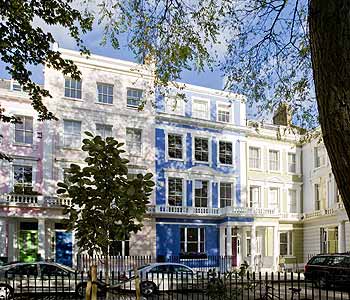 ote uncertainty, there has been a catalogue of destabilizing bad news recently:
ote uncertainty, there has been a catalogue of destabilizing bad news recently:
· The Panama papers – putting intense pressure David Cameron and his bid to stay within the EU with Osbourne also being drawn in
· Record trade deficit figures for February – partly caused by the low oil prices, weak Sterling and miserable North Sea drilling activity plus manufacturing onshore being in the doldrums
· Weakening Sterling ahead of the Brexit vote
· Further threats on foreign investors using London property as a safe haven
· The Tata Steelworks close-down debacle – further illustrating how uncompetitive UK manufacturing has become – is it any wonder when you consider the sky-high energy prices caused by failed energy policies over the last 15 years and pandering to uneconomic energy systems like offshore wind farms and PV solar panels in places like Scotland and NW England (two of the least sunny places on earth).
· The end of a mini-property boom caused by buy-to-let investors grabbing properties before the stamp duty goes 3% for second homes on 6 April.
Tories in Trouble: David Cameron in a recent poll all of a sudden is less popular then Jeremy Corbyn – incredible considering the turmoil the Labour party were in only 2-3 months ago. It has not been a good week for the Tories.
Brexit Fears: We now think the summation of all these problems will send property prices into a stagnant phase in the next few months as the Brexit uncertainty and 3% stamp duty hammers property buyer’s confidence, particularly in high end London property. The vestiges of the ripple effect may continue for a while in more affordable places like Leicester, Rugby and Gravesend – but we are bound to see a major slowdown – and we could even see a crash if the UK population decides on a Brexit, which seems more likely now that Cameron and Osbourne are on the back foot over the economy and offshore tax havens.
Rural Areas Would Be Worst Affected: Despite all of this, if the UK exits the EU, the worst affected areas are likely to be places far away from London and rural area that rely on EU subsidies and trade. Hence we think it is very risky at the moment investing in places like Wales, Scotland and NE England.
Criteria for Higher Property Prices: We are now going to ask the question why property prices are higher in London/SE England compared to other areas. If you look at all these criteria below, you will understand why West London property prices are so high. London ticks all these boxes.
-
High paid jobs – finance, technology, media and professional
-
Warm weather
-
Sunny weather
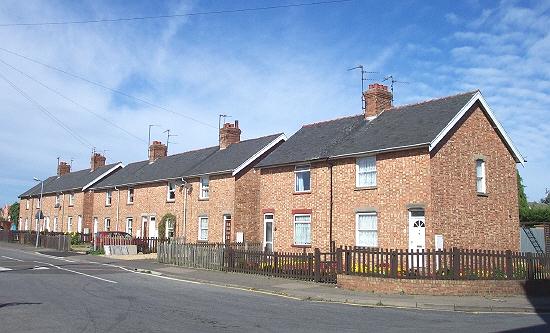
-
Annual daylight hours
-
Drier climate
-
Proximity to Europe
-
Proximity to international airports
-
Universities
-
Private schools
-
Nice countryside
-
Proximity to historic towns and cities - culture
-
Theatres, cafes, restaurants, shops
-
Shortage of homes being built compared to demand
-
Shortage of low cost building land
-
Nimbyism and tough planning regulations
-
Demand for property caused by rising wages, employment, business and population
Contrast: Now let’s take look at a place at completely the other end of the spectrum – a rural village in 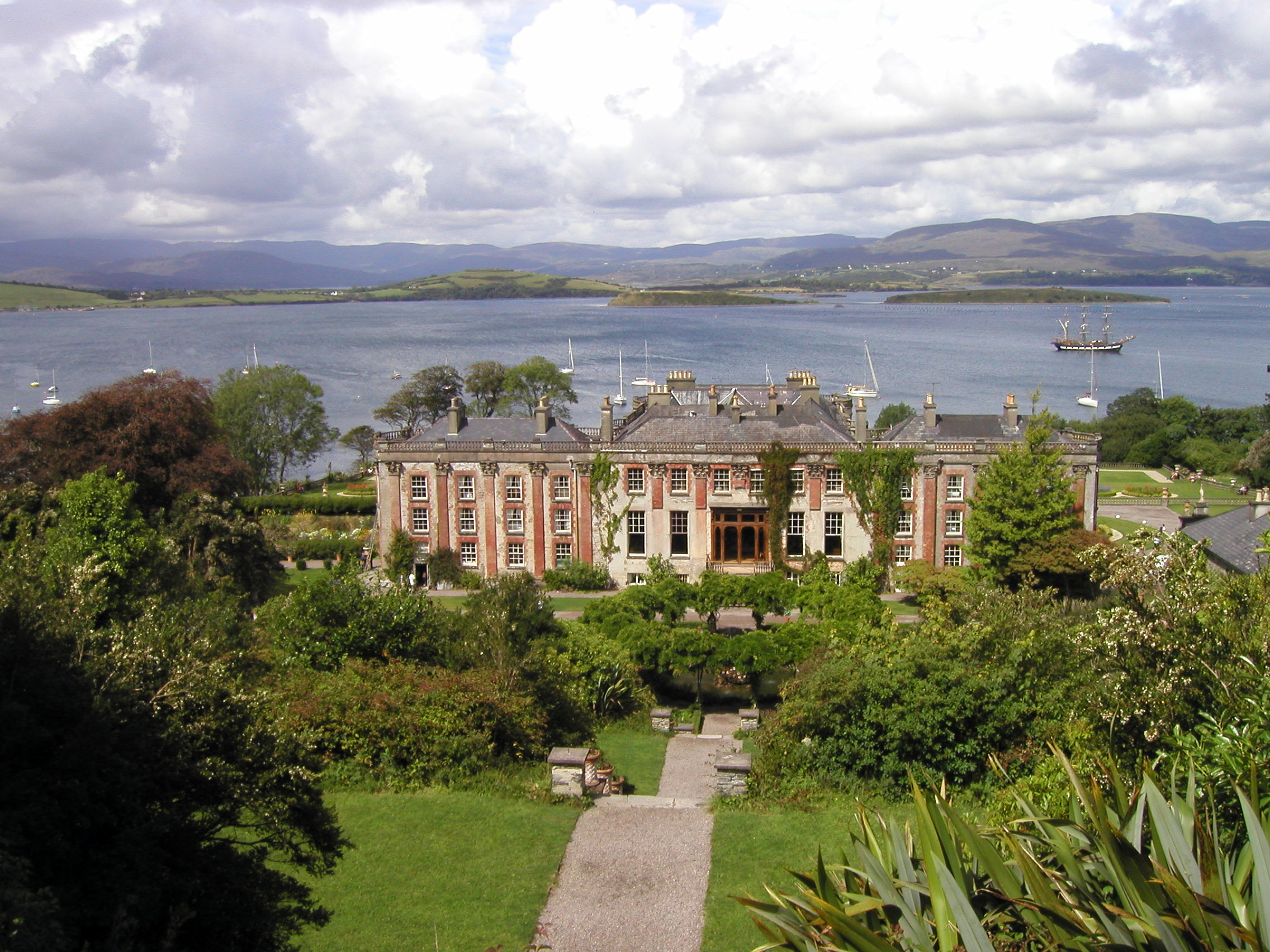 NW Scotland. It is remote, dark, rains a lot, has very little sunlight hours, no significant industry or commerce, no high paid jobs, very little in the way of historic towns-cities, no universities or top schools, depopulating area with a lot of available land to build on, poor agriculture, far removed from any airport, barren countryside, no high paid jobs in finance, no high-tech jobs, few professional services etc. We could understand property prices rising in places like St Andrews – because of the University, proximity to airports, Edinburgh etc, but not in the far outposts of mainland NW Scotland.
NW Scotland. It is remote, dark, rains a lot, has very little sunlight hours, no significant industry or commerce, no high paid jobs, very little in the way of historic towns-cities, no universities or top schools, depopulating area with a lot of available land to build on, poor agriculture, far removed from any airport, barren countryside, no high paid jobs in finance, no high-tech jobs, few professional services etc. We could understand property prices rising in places like St Andrews – because of the University, proximity to airports, Edinburgh etc, but not in the far outposts of mainland NW Scotland.
South Devon Example: However, if you go to relatively remote Salcombe in South Devon, the weather is far better, lots of sun, beaches, professionals that visit from London, quite close to Exeter airport, high demand for property, very little building, lots of nice cafes, restaurants, nice countryside, good schools, Exeter University close by – a cathedral city, with lots of good professional jobs in Exeter. Its not difficult to see why prices in South Devon will likely rise in future years.
Rochdale Example: The purpose of this analysis is not to say you cannot make serious money buying properties in places like Rochdale and Bury, but overall the capital value gains are likely to be far less and the problems you get investing in a derived area are often difficult to manage remotely since re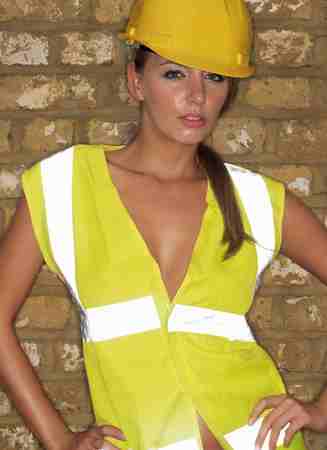 ntal demand is low, rental prices are low and unemployment and associated crime and problems are normally high. You are probably better off investing in an area with lower yield but with a higher chance of low risk and high capital value increase in future years – any area well connected to London and offering as many of the criteria mentioned above as possible. You have to ask yourself - who would want to live in Rochdale or Bury - and would you choose to live in Rochdale or Bury? You can ask this question about any place in the UK of course - and if the answer is yes, you are more likely to see house prices rise and rental prices rises.
ntal demand is low, rental prices are low and unemployment and associated crime and problems are normally high. You are probably better off investing in an area with lower yield but with a higher chance of low risk and high capital value increase in future years – any area well connected to London and offering as many of the criteria mentioned above as possible. You have to ask yourself - who would want to live in Rochdale or Bury - and would you choose to live in Rochdale or Bury? You can ask this question about any place in the UK of course - and if the answer is yes, you are more likely to see house prices rise and rental prices rises.
Positive Improvements: If the area is positively improving because of new business or infra-structure developments (e.g. Acton, Abbey Wood, Forest Gate, Woolwich - Crossrail) then price are likely to rise along with rental prices - all good news for property investors.
Harder Business: From now onwards, it will be far harder to make profits in buy-to-let, particularly new entrants – so the investor needs to be careful, manage risks appropriately and only buy if the rational seems to point in the right direction on almost all indicators. The Tories have made it very difficult for buy-to-let to be economic and henceforth this will cause further problems and a deepening of the housing crisis as rental property dries up and rents skyrocket later in 2016-2019. One of the key criteria is employment and high wages – so you are destined for problems if you invest in area which will be negatively impacted by a Brexit like:
· Remote rural areas, off the tourist and second home trails
· Manufacturing dominated areas with heavier industries - e.g. Redcar, Glasgow, Barrow
· Areas far from high paid jobs in major cities
Choosing The Right Area: One can see a rational for investing in up and coming areas of major cities like Leeds, Manchester and Birmingham – and definitely  London and surrounding areas – including those in southern England on the tourist trails (Devon, Cornwall, Dorset) but we would be very careful in remote areas of Wales and Northern UK like Barmouth, NW Scotland, NE England, Barrow/Bury/Rochdale for example. Overall, it’s probably best to hold off any investment for the next few months – to see how the Brexit vote goes and de-risk the possibility of a serious recession that could occur by year end - that would clobber house prices and employment. Also, the new taxes on buy-to-let could precipitate a house price crash, unlikely but possible - and if we see this - early signed would come in the mid May then mid June Rightmove.co.uk property price reports.
London and surrounding areas – including those in southern England on the tourist trails (Devon, Cornwall, Dorset) but we would be very careful in remote areas of Wales and Northern UK like Barmouth, NW Scotland, NE England, Barrow/Bury/Rochdale for example. Overall, it’s probably best to hold off any investment for the next few months – to see how the Brexit vote goes and de-risk the possibility of a serious recession that could occur by year end - that would clobber house prices and employment. Also, the new taxes on buy-to-let could precipitate a house price crash, unlikely but possible - and if we see this - early signed would come in the mid May then mid June Rightmove.co.uk property price reports.
2 Brexit for Property Investors - Threats
Economy in Bad Shape: The UK economy has been in pretty bad shape ever since the last Labour government squandered and overspent its way into trouble. The Tory government in 2010 started to re-balance the economy with austerity measures simply because the UK was technically bankrupt and it could no longer afford to pay massive public sector costs whilst the tax paying private sector shrivelled away. It’s simply not possible to “spend your way out of trouble” - economics does not work like that.
Worsening Since Late 2015: Things were beginning to look quite a bit brighter with rising employment, lowering unemployment, low inflation and rising wages through to the end of 2015, but things have taken a bad turn recently. The Tories timed the economic mini-boom - particularly in the housing market - to perfection for themselves and their votes. We will explain.
Oil Price: Firstly, the immediate positive impact on consumers of the oil price crash from $110/bbl in July 2014 to $30/bbl mid 2015 has worn off and been muted partly by the massive petrol tax burden the UK consumers already pay.
North Sea Oil Revenues: Meanwhile North Sea revenues have crashed to around 10% of levels 3 years ago – oil production levels have also collapsed from 1999 onwards off the back of three successive 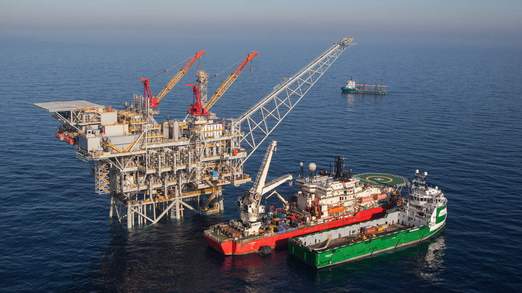 draconian tax increases by Labour (two) and Tory (one) governments. This has lost 30,000 jobs since mid 2014 mainly in Scotland. The North Sea oil industry has died – and no one seems to gives any regard to this in Westminster. Current no exploration drilling rig is operating in in the UK sector of the North Sea - zero exploration activity.
draconian tax increases by Labour (two) and Tory (one) governments. This has lost 30,000 jobs since mid 2014 mainly in Scotland. The North Sea oil industry has died – and no one seems to gives any regard to this in Westminster. Current no exploration drilling rig is operating in in the UK sector of the North Sea - zero exploration activity.
European Faltering: The European economy has faltered which has caused economic headwinds and the UK recorded this month it's highest ever trade deficit – totalling 7% of GDP. This is partly caused by Sterling’s 9% decline since October 2015.
Brexit Threat Insecurity: We now have the spectre of a potential EU exit which would frankly be catastrophic for business as our relationship with our largest trading partner – mainland Europe – unwinds over a 10 year period. The uncertainly has already badly affected Sterling and borrowing costs are starting to edge higher because of the financial uncertainty.
Northern Depression: The north of England, Wales and Scotland have been in a depression since 2008 – their meagre house price increases are evidence of this. very few people can afford to purchase properties because wages are so low, job security tenuous, prospects poor and large areas are suffering de-population to cities and regions in the south of England. Despite low house prices in the north, people still cannot afford to purchase - or find the risks too high. The term “Northern Powerhouse” is a joke – the closing of Britain’s steel plants is another example of the terminal decline of UK manufacturing, the North Se a is another example. A Brexit would hit these areas particularly hard – as borrowing costs would rise and stifle economic activity even further. The high energy cost burden puts UK manufacturing at a big disadvantage compared to mainland Europe.
a is another example. A Brexit would hit these areas particularly hard – as borrowing costs would rise and stifle economic activity even further. The high energy cost burden puts UK manufacturing at a big disadvantage compared to mainland Europe.
Sequence of Events: If the UK voted to Brexit – we believe the following would happen:
· Five years of uncertainly would hamper business confidence and investment
· Sterling would crash at least 20% from its current low level against the Euro and Dollar
· Inflation would start to rise sharply as import costs rose
· Interest rates would have to rise to control inflation and defend Sterling’s value
· The trade deficit would rise sharply
· The budget deficit would rise sharply
· Sterling would then drop further – a viscous circle
· Oil prices would rise – in dollar terms
· Property prices would drop sharply or crash
· Rental demand would drop as EU workers left London and England
· Unemployment would rise
· The SNP would demand another Referendum – particularly if they were assured they would be allowed back into the EU (albeit this might be unlikely because of the decline in oil revenues)
· Labour may seize on the chaos and could get voted in by 2020
· Business would then deteriorate faster as the deficit worsened – once La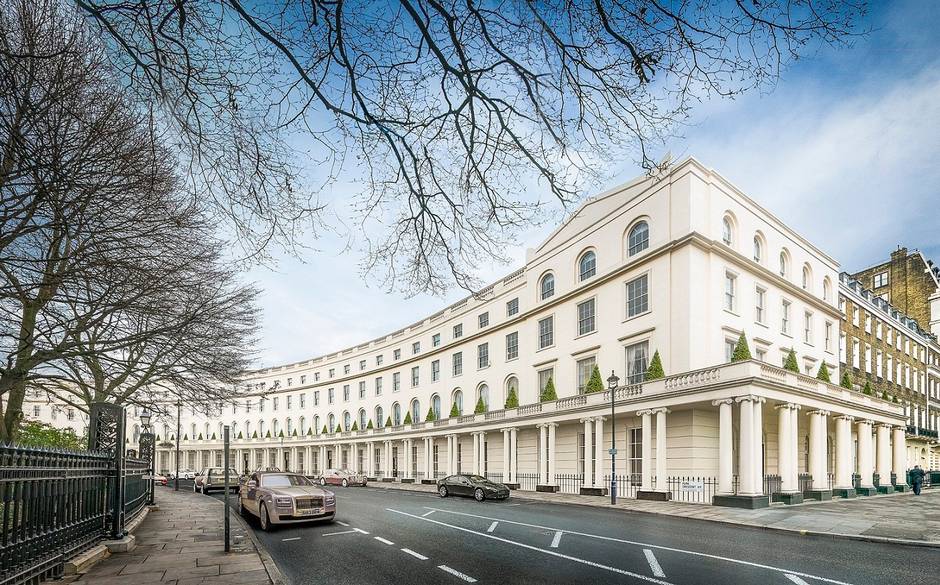 bour increased taxes and started spending huge amounts of money they did not have with socialist policies destroying any remaining confidence - house prices would crash
bour increased taxes and started spending huge amounts of money they did not have with socialist policies destroying any remaining confidence - house prices would crash
Common Sense: We rather think sense is most likely to prevail – as the risks are just too high – and people won’t want to risk jobs and the economy on the Brexit experiment. Boris Johnson’s bid to become Prime Minister seems to rest on a Brexit which is sad, since we think it was more likely he would get the top PM job if he helped his friend David Cameron instead of side against him in a shock move.
Safe Haven: The optimists seem to think London and the UK would become some sort of offshore safe haven – with developing economic relations with the Commonwealth countries and the USA. There would certainly be less silly EU regulations and law but we believe many international investors would shy away from investing in the UK because of Sterling’s decline and rising economic risks. Certainly we think it would send London property prices down and interest rates would rise and inward investment would slow – London would become far less of a preferred place for the global super-rich to live. This would negatively impact the whole UK economy - particularly in SE England. Post Brexit, the UK would in our view certainly not be a financial safe haven.
Dividing the Tory Party: A key concern is how the Brexit debate is dividing the Tory party – just went it looked 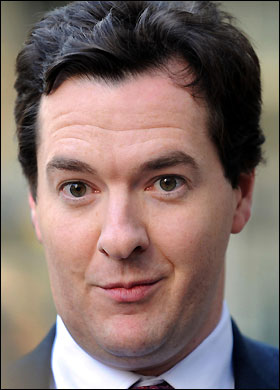 like Labour was self-imploding on itself. Now we have two self-imploding parties, one in power and the other in opposition. In reality it’s difficult to see Labour getting into power without their Scottish votes and we don’t think these are coming back since SNP has it sewn up, but the more Tories in-fight the more chance the electorate may take the economically foolish route of either voting for a Brexit or voting for Labour. These are all very important concerns for Landlords – since property investors have already been hammered by the Tories with successive tax rises since March 2015 and a Brexit would ruin any remaining vestiges of profitability their might be in property – with a Labour victory being the que to getting out as soon as property investors could before further waves of tax rises came their way. The upside is that people vote against a Brexit, the Tories quickly repair their strained relations then focus on the divided Labour party – and by end 2016 all could be back on track, with the SNP not wanting another Referendum because they may get kicked out of the EU for having such large deficits now the oil revenues have crashed (note: oil revenues are now only 10% of what Alex Salmond was promising a few years ago – shame on him – as an ex-professional oil economist).
like Labour was self-imploding on itself. Now we have two self-imploding parties, one in power and the other in opposition. In reality it’s difficult to see Labour getting into power without their Scottish votes and we don’t think these are coming back since SNP has it sewn up, but the more Tories in-fight the more chance the electorate may take the economically foolish route of either voting for a Brexit or voting for Labour. These are all very important concerns for Landlords – since property investors have already been hammered by the Tories with successive tax rises since March 2015 and a Brexit would ruin any remaining vestiges of profitability their might be in property – with a Labour victory being the que to getting out as soon as property investors could before further waves of tax rises came their way. The upside is that people vote against a Brexit, the Tories quickly repair their strained relations then focus on the divided Labour party – and by end 2016 all could be back on track, with the SNP not wanting another Referendum because they may get kicked out of the EU for having such large deficits now the oil revenues have crashed (note: oil revenues are now only 10% of what Alex Salmond was promising a few years ago – shame on him – as an ex-professional oil economist).
Risks for Property Investors: Sadly, it’s been a sorry sequence of Tory tax increases and uncertainly that will lead to massively increasing rental prices in future years and a worsening of the housing crisis. A Brexit would certainly dampen any remaining hope of keeping property an economic profitable business.
We hope this Newsletter has helped give you some valuable insights into a Brexit and how this might affect investment and property owner. If you have any comment or queries, please contact us on enquirie@propertyinvesting.net

